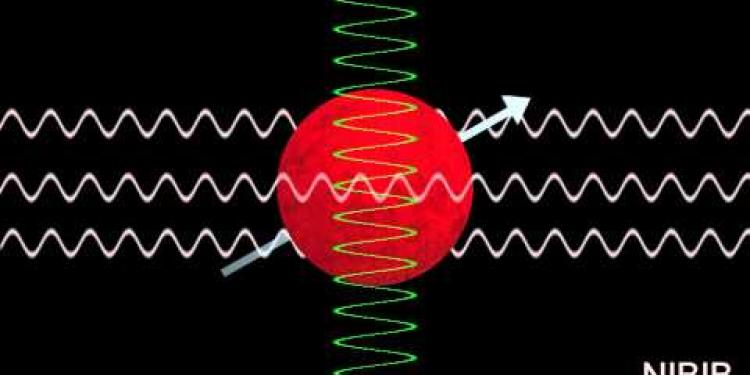Important Information On Using This Service
- Ergsy carefully checks the information in the videos we provide here.
- Videos shown by YouTube after a video has completed have NOT been reviewed by ERGSY.
- To view, click the arrow in the center of the video.
Using Subtitles and Closed Captions
- Most of the videos you find here will have subtitles and/or closed captions available.
- You may need to turn these on and choose your preferred language.
Turn Captions On or Off
- Go to the video you'd like to watch.
- If closed captions (CC) are available, settings will be visible on the bottom right of the video player.
- To turn on captions, click settings.
- To turn off captions, click settings again.
Find A Professional
More Items From Ergsy search
-
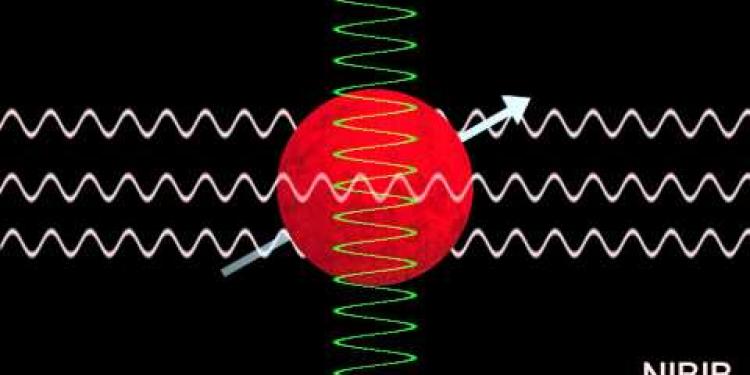
How Does an MRI Scan Work?
Relevance: 100%
-
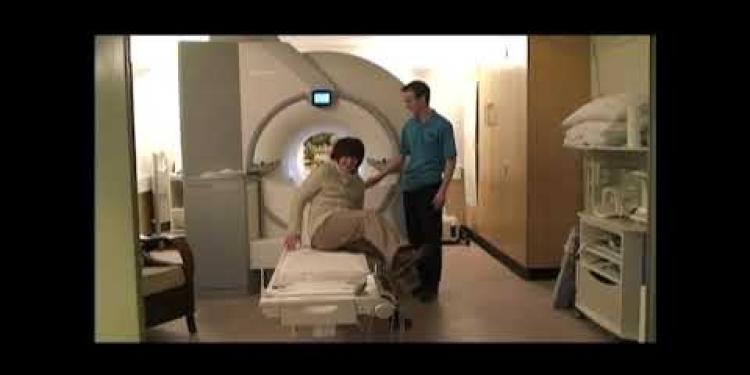
Going for an MRI Scan
Relevance: 97%
-

I'm having an MRI scan
Relevance: 88%
-

MRI Scanner walkthrough - what to expect at your appointment
Relevance: 59%
-

Prostate cancer diagnosis and tests
Relevance: 16%
-

Finding out about Fibroids - information for patients
Relevance: 8%
-

Head and Neck Cancer Diagnosis
Relevance: 7%
-

How is Crohn's disease diagnosed?
Relevance: 6%
-
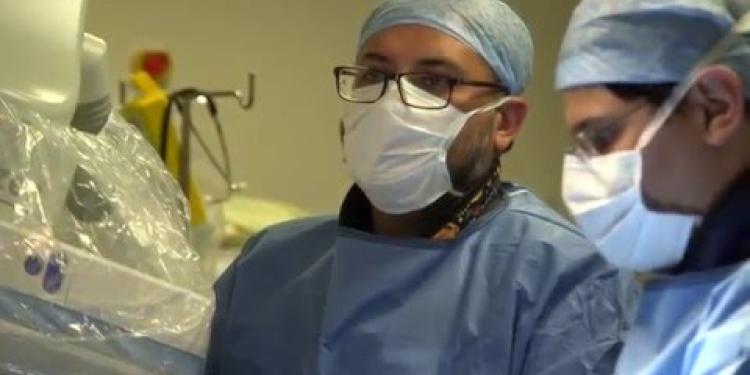
Having a pacemaker
Relevance: 6%
-
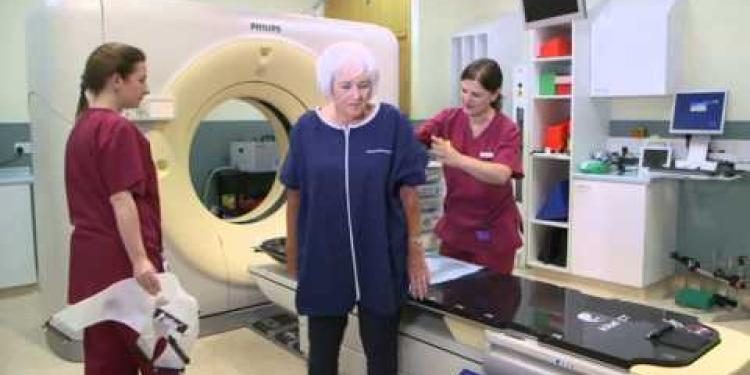
Radiotherapy to the Head and Neck: A Guide for patients and their carers
Relevance: 5%
-
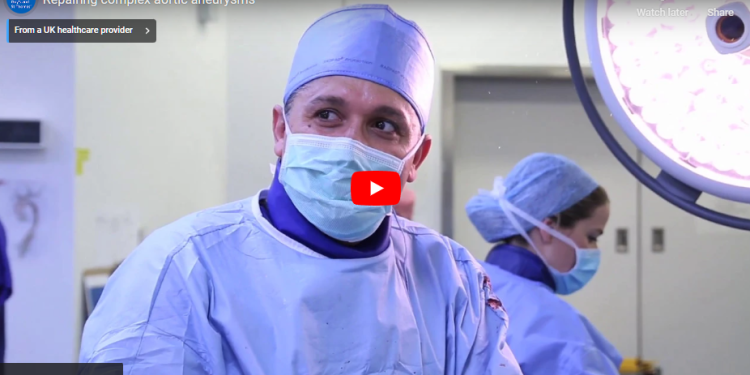
Repairing complex aortic aneurysm
Relevance: 5%
-

What areas of the NHS are using AI in 2024?
Relevance: 5%
-

Emma's story: My brain tumour story
Relevance: 5%
-

Tennis Elbow
Relevance: 5%
-
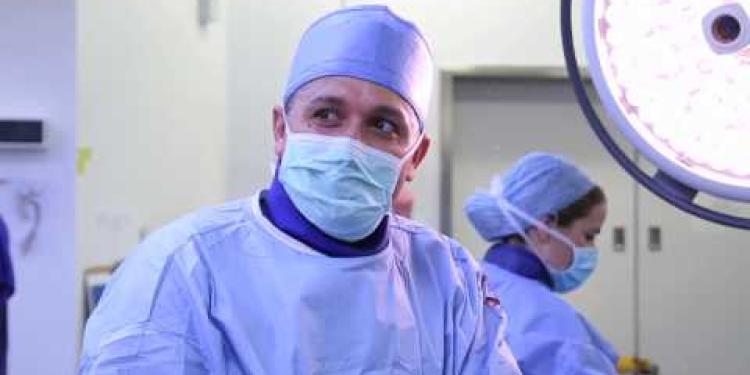
Repairing complex aortic aneurysms
Relevance: 5%
-

What is Crohn’s disease and how is it treated?
Relevance: 5%
-

Osteoarthritis of the Hip
Relevance: 5%
-

Frozen Shoulder Assisted Flexion
Relevance: 5%
-

Assessing the stroke patient
Relevance: 5%
-
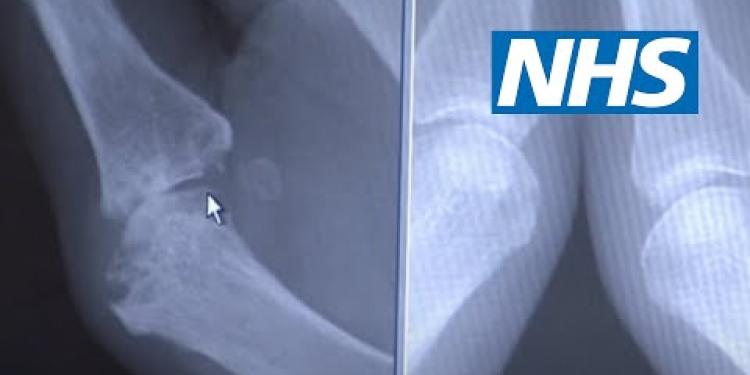
Rheumatoid arthritis | NHS
Relevance: 5%
-

Hernias and their Treatments - A guide for patients
Relevance: 5%
-

How is Alzheimer's disease diagnosed?
Relevance: 5%
-

NHS Forth Valley’s Stroke Team
Relevance: 5%
-

Shoulder subacromial shoulder pain
Relevance: 5%
-

Vaginal Cancer
Relevance: 5%
-
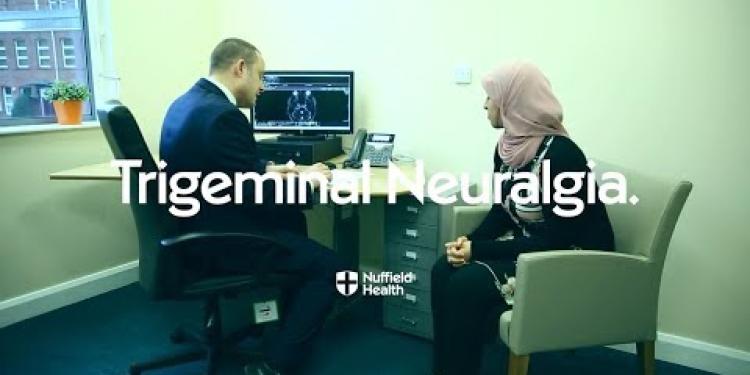
Trigeminal Neuralgia
Relevance: 5%
-
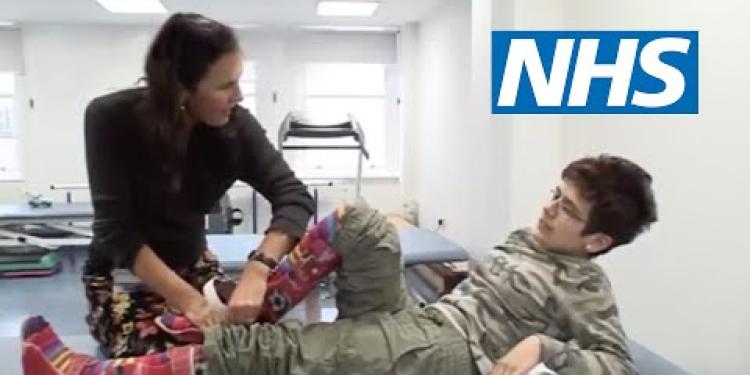
Cerebral palsy | NHS
Relevance: 4%
-

Early onset dementia | NHS
Relevance: 4%
-

Vulval Cancer
Relevance: 4%
-
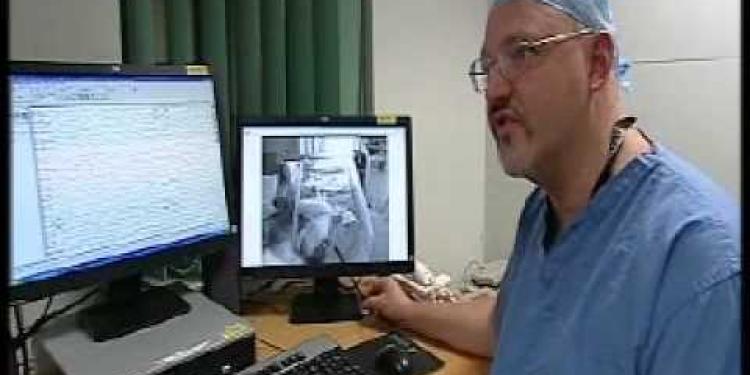
Neurosurgery for Epilepsy
Relevance: 4%
-

Greater trochanteric pain syndrome
Relevance: 4%
-
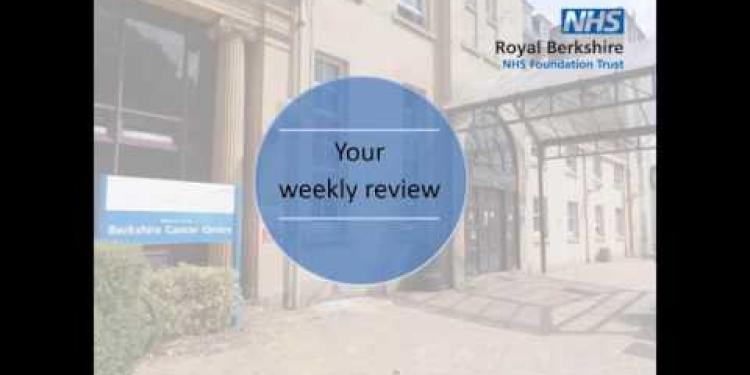
Royal Berkshire NHS Foundation Trust: Radiotherapy for prostate cancer
Relevance: 4%
-
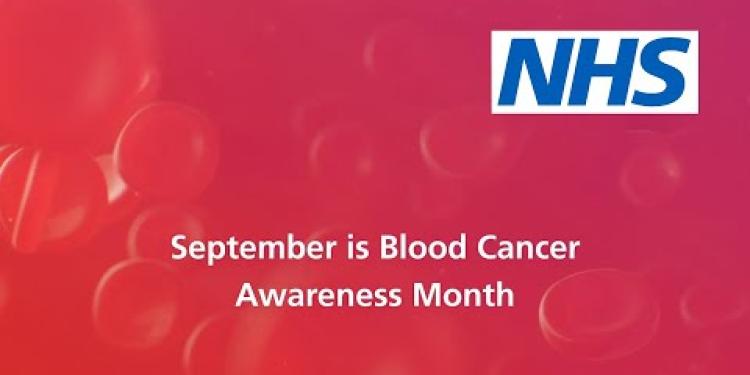
4 facts about blood cancer that you should know | NHS
Relevance: 4%
-

Endometrial Cancer
Relevance: 3%
-
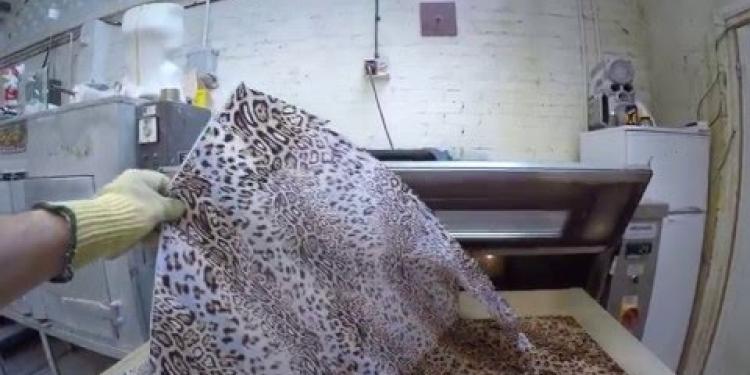
Making a spinal brace for a scoliotic patient at the RNOH
Relevance: 3%
-

Are AI body scans reliable?
Relevance: 3%
-

A journey to hip surgery
Relevance: 3%
-

Advice on neck pain and whiplash
Relevance: 3%
-

Ganglion Cyst Removal
Relevance: 3%
-
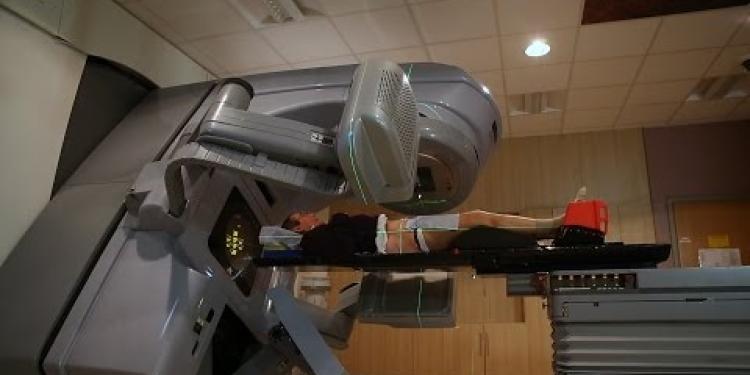
What is it like having Prostate Radiotherapy treatment?
Relevance: 3%
Going for an MRI Scan
What is an MRI Scan?
Magnetic Resonance Imaging (MRI) is a medical imaging technique used to create detailed images of the organs and tissues in your body. An MRI scan uses powerful magnets and radio waves to generate these images. It is a non-invasive procedure that helps doctors diagnose various conditions, monitor treatments, and plan surgeries.Why You Might Need an MRI Scan
An MRI scan can be used to examine almost any part of the body, including the brain, spine, joints, abdomen, and blood vessels. Patients might be referred for an MRI scan to investigate symptoms such as persistent headaches, back pain, or unexplained muscle weakness. It is also commonly used to detect conditions like tumors, joint abnormalities, or neurological disorders.Preparing for Your MRI Scan
Before your MRI scan, you will be given specific instructions to follow. Typically, you will need to remove any metal objects, including jewellery and hearing aids, as these can interfere with the magnetic field. You may also be asked to change into a hospital gown. In some cases, you might be required to avoid eating or drinking for a few hours prior to the scan.During the MRI Scan
The MRI scanner is a large tube that contains powerful magnets. You will lie on a movable bed that slides into the scanner. The radiographer will operate the scanner from an adjacent room and can communicate with you via intercom. The procedure usually takes 15 to 45 minutes, depending on the area being scanned. You will need to stay very still during the scan to ensure clear images are captured. The scanner can be noisy, but you will be provided with earplugs or headphones to reduce discomfort.After the MRI Scan
Once the scan is complete, you can usually go about your day as normal. There are no side effects from the scan itself, and you can resume eating and drinking immediately. The images obtained during your scan will be reviewed by a radiologist, who will send a detailed report to your referring doctor. Your doctor will then discuss the results with you at a follow-up appointment.Cost and Availability in the UK
MRI scans are widely available across the United Kingdom, both through the National Health Service (NHS) and private healthcare providers. If you are referred for an MRI scan by your NHS doctor, the cost will generally be covered by the NHS. Private MRI scans are also available but can be expensive. It's a good idea to check wait times and costs if you are considering a private provider.Conclusion
Having an MRI scan can be an essential step in diagnosing and treating medical conditions. Understanding what to expect can help alleviate any concerns or anxieties. Always follow your healthcare provider's instructions to ensure the most accurate results. If you have any questions or experience any discomfort during or after your MRI scan, don't hesitate to inform your healthcare team.Going for an MRI Scan
What is an MRI Scan?
An MRI scan is a way for doctors to see inside your body. It uses big magnets and radio waves to make pictures of your organs and tissues. This helps doctors find out what might be wrong, check how treatments are going, or plan surgeries.Why You Might Need an MRI Scan
Doctors may tell you to have an MRI scan to look at different parts of your body, like your brain, back, or joints. You might need one if you have problems like bad headaches, back pain, or weak muscles. MRI scans can help find issues like tumors or joint problems.Preparing for Your MRI Scan
Before your MRI scan, you will get some instructions to follow. You will need to take off metal things, like jewelry and hearing aids, because they don’t work well with the machine. You might have to wear a hospital gown. Some people also need to not eat or drink for a few hours before the scan.During the MRI Scan
The MRI machine looks like a big tube. You will lie on a bed that moves into the tube. A person called a radiographer will use the machine from a nearby room. They can talk to you using an intercom. The scan takes between 15 to 45 minutes. It's important to lie still so the pictures are clear. The machine makes loud noises, but you will get earplugs or headphones to make it quieter.After the MRI Scan
When the scan is done, you can go back to what you were doing before. There are no bad effects from the scan, so you can eat and drink like usual. A special doctor, called a radiologist, will look at the pictures and send a report to your doctor. Your doctor will talk to you about the results later.Cost and Availability in the UK
You can get an MRI scan in many places in the UK. The NHS pays for the scan if your doctor sends you for one. If you go to a private doctor, you might have to pay a lot. It’s good to learn about wait times and prices if you choose a private scan.Conclusion
An MRI scan can help find and treat health problems. Knowing what happens can make you feel better about it. Always do what your healthcare provider says to get the best results. If you have questions or feel uncomfortable, tell your healthcare team.Frequently Asked Questions
What is an MRI scan?
An MRI scan is a type of medical imaging that uses magnetic fields and radio waves to create detailed images of the inside of your body.
Why is an MRI scan performed?
An MRI scan is conducted to diagnose and monitor conditions, such as injuries, brain disorders, spinal cord diseases, joint abnormalities, and more.
Is the MRI scan safe?
Yes, MRI scans are generally very safe. They do not use ionising radiation like X-rays or CT scans. However, certain patients with metal implants may not be eligible.
How long does an MRI scan take?
The duration of an MRI scan can vary, but it typically takes between 15 to 90 minutes, depending on the area being scanned and the complexity of the scan.
Do I need to prepare for an MRI scan?
Preparation may include fasting for a few hours or removing metal objects from your body. Your healthcare provider will give you specific instructions.
Can I eat or drink before my MRI scan?
In most cases, you can eat and drink as normal. However, if you need a scan of your abdomen or pelvis, you may be instructed to avoid eating for a few hours prior.
What should I wear to an MRI scan?
Wear loose, comfortable clothing without metal fastenings. You may also be asked to change into a hospital gown for the scan.
Can I have an MRI scan if I have metal implants?
It depends on the type and location of the metal implants. You must inform your radiographer about any implants, surgical metal clips, or medical devices you have.
Will I experience discomfort or pain during the MRI scan?
MRI scans are generally painless. However, having to lie still for an extended period may be uncomfortable for some people. You can communicate with the radiographer if you feel any discomfort.
What happens during an MRI scan?
During the scan, you will lie on a table that slides into the MRI machine. You will need to stay very still while the machine takes images. The machine may be noisy, and you will be provided with earplugs or headphones.
Can I listen to music during the MRI scan?
Many MRI centres offer headphones with music or earplugs to help block out the noise of the machine. You can ask about this option when you arrive for your scan.
Are there any side effects from an MRI scan?
MRI scans typically have no side effects. Some people might feel a bit claustrophobic inside the MRI machine but this is not harmful.
What if I’m claustrophobic?
If you're claustrophobic, inform your radiographer. They can provide support and may offer alternatives such as an open MRI scanner or medication to help you relax.
When will I get my MRI scan results?
The images from your MRI scan will be examined by a radiologist, and the results are usually available within a few days. Your doctor will discuss the results with you.
Is the MRI scan covered by NHS?
Yes, MRI scans are covered by the NHS in the UK if they are deemed necessary by your doctor. Private scans are also available but will incur a cost.
What is an MRI scan?
An MRI scan is a way for doctors to see inside your body. It uses a big machine with a magnet to take pictures. These pictures help doctors see your organs, muscles, and bones.
MRI stands for Magnetic Resonance Imaging.
If you need an MRI scan, here are some tips:
- Stay very still so the pictures are clear.
- The machine makes loud noises, but you can wear headphones to listen to music.
- Tell the doctor if you feel scared or uncomfortable.
Remember, the MRI scan doesn't hurt and it helps doctors know more about your health.
An MRI scan is a special kind of picture taken by doctors. It uses magnets and radio waves to see inside your body and make clear, detailed images.
Why do we have an MRI scan?
An MRI scan is a special test that doctors use. It helps them see inside the body. They use it to find out what is wrong, like if someone has hurt themselves, has brain problems, or if there is something wrong with their back or joints.
Here are some things that might help when reading:
- Read slowly. Take your time with each word.
- Use your finger to follow the words on the page.
- Ask someone to read it with you and help explain it.
Is the MRI scan safe?
An MRI scan is a special type of picture of the inside of your body. It is a safe test for most people. There is no pain, and it does not use harmful rays. It uses strong magnets and radio waves instead.
Always tell the doctor if you have a pacemaker or any metal in your body. This is very important for your safety.
If you are worried or have more questions, ask a doctor or nurse. They can help you feel better and explain what will happen.
You can use tools like picture books or videos to learn more about MRI scans. Talking with someone who knows about MRIs can also help you understand.
Yes, MRI scans are usually very safe. They don't use the same kind of radiation as X-rays or CT scans. But, people with metal in their bodies might not be able to have an MRI scan.
How long is an MRI scan?
An MRI scan takes about 15 to 90 minutes. This means it can be short or a bit longer. Sometimes it is as short as a TV show. Other times, it is as long as a movie.
Ask someone to explain if you need help. It is okay to take a friend or family with you.
An MRI scan usually takes between 15 minutes and 90 minutes. The time depends on which part of the body is being checked and how tricky the scan is.
Do I need to get ready for an MRI scan?
An MRI scan is a big camera that looks inside your body.
Here’s how you can get ready:
- Wear clothes without metal. Metal things like zippers or buttons must stay outside.
- Let the doctor know if you feel scared in small spaces.
- You can bring music or ask for earplugs. It can be noisy in there.
If you follow these tips, the scan will be easier for you!
To get ready, you might need to stop eating for a little while or take off metal things like jewelry. Your doctor will tell you exactly what to do.
Can I eat or drink before my MRI scan?
An MRI scan is a picture of the inside of your body. Before some MRI scans, you might need to stop eating or drinking. This helps the doctors get a better picture.
Ask your doctor if you need to stop eating or drinking before your scan.
It's important to follow the doctor's instructions.
To make it easier, set a reminder on your phone to help you remember.
Most of the time, you can eat and drink like normal. But if you need a scan of your belly or lower tummy, you might be told not to eat for a few hours before.
It is helpful to use pictures or videos to understand instructions better. You can also ask someone to explain the instructions to you.
What clothes should I wear for an MRI scan?
When you go for an MRI scan, it is important to wear the right clothes. Here are some tips to help you choose what to wear:
- Avoid Metal: Do not wear clothes with metal, like zips or buttons.
- Comfortable Clothes: Wear soft and loose clothes. This helps you stay comfy.
- Simple Jewelry: Do not wear jewelry or a watch. Leave them at home.
- Hair Ties: If you need to tie your hair, use a tie with no metal.
If you need help remembering what to wear, write a list or ask someone to remind you.
Wear clothes that are loose and comfy. Make sure they don't have metal parts. You might need to change into a hospital gown for the scan.
Tip: If you find reading hard, ask someone to read with you or use a reading app on a tablet or phone to help.
Can I get an MRI if I have metal in my body?
Tell your doctor if you have metal inside you. Sometimes, it is safe to have an MRI, but other times it is not. Your doctor knows best and will help you. You might need a different scan, like a CT scan. Always ask your doctor.
It matters what kind of metal you have and where it is in your body. Always tell the person doing the scan if you have any metal bits, surgical clips, or medical devices in you.
Will I feel any pain during the MRI scan?
A MRI scan should not hurt. You might feel a bit uncomfortable if you have to stay still. You can tell the nurse if you feel worried or scared. They can help you. You can also listen to music to feel better.
MRI scans do not usually hurt. But you have to stay still for a long time, and that might not feel good for some people. You can talk to the person doing the scan if you start to feel bad.
What happens in an MRI scan?
An MRI scan is a special picture of the inside of your body. Here's what to expect:
- You will lie down on a table. It will slide into a big, round machine.
- The machine makes loud noises, but it won't hurt you. You can wear headphones to block the noise.
- Try to stay very still, like a statue, while the machine takes pictures.
You can ask a nurse or a doctor if you have questions. They are there to help you.
When you have your scan, you will lie down on a table. The table goes into a big machine called an MRI machine. You have to lie very still while the machine takes pictures. The machine can be loud, so you will get earplugs or headphones to help with the noise.
Can I listen to music during the MRI scan?
Yes, you can listen to music while you have an MRI scan. Music can help you relax. You can ask the nurse or doctor to play music for you. They might give you headphones so you can listen. If you feel nervous, tell the nurse or doctor. They can help you feel better.
When you go for an MRI scan, the machine can be noisy. Many places will give you headphones with music or earplugs to make it quieter. You can ask for these when you get there.
Do MRI scans have any side effects?
MRI scans are safe and usually don't cause problems.
Some people might feel scared in the machine. It can help to close your eyes and breathe slowly.
If you are worried, you can talk to the doctor or nurse.
MRI scans are usually safe and do not cause problems. Some people might feel scared or uncomfortable in the small space of the MRI machine, but this is okay and will not hurt you.
If you feel scared, you can: - Close your eyes and think of something nice. - Listen to music if they let you. - Tell the person doing the scan how you feel.
What if I am scared of small spaces?
If you are scared of small spaces, tell the person doing the scan. They can help you feel better. They might use a special machine that is more open or give you medicine to help you feel calm.
When will I know my MRI scan results?
You will find out your MRI results from your doctor. This could take a few days or a week. If you have questions, you can call your doctor to ask.
Here are some tips to help you:
- Ask someone you trust to help you understand the results.
- Write down any questions you have before talking to your doctor.
- Use a calendar to keep track of doctor's appointments.
A special doctor called a radiologist will look at the pictures from your MRI scan. It usually takes a few days to get the results. Your doctor will talk to you about what the results mean.
Does the NHS pay for an MRI scan?
Yes, the NHS in the UK will pay for your MRI scan if your doctor says you need it. You can also get an MRI scan privately, but you will have to pay for it.
Useful Links
Useful links from: MRI Scanner walkthrough - what to expect at your appointment
- NHS - MRI Scan Official NHS page detailing what MRI scans are, why they're used, how they work, and what to expect during your appointment.
- Cancer Research UK - MRI Scans Information from Cancer Research UK about MRI scans, focusing particularly on their use in cancer diagnosis and treatment, including what happens during the scan and how to prepare.
- Macmillan Cancer Support - MRI Scan Macmillan Cancer Support provides an overview of MRI scans, including why you might need one, how to prepare, and what to expect on the day of your scan.
- NHS Inform - MRI Scan Scotland's national health information service explains what MRI scans are, how they are performed, risks and benefits, and other essential information for patients.
Useful links from: I'm having an MRI scan
- NHS - MRI scan Comprehensive information from the NHS about MRI scans, including what they are, how they are done, and what to expect during the procedure.
- Macmillan Cancer Support - MRI Scan A detailed guide by Macmillan Cancer Support on MRI scans, particularly focusing on those who might need the scan due to cancer-related issues.
- Cancer Research UK - MRI scan Information provided by Cancer Research UK about MRI scans, highlighting their use in cancer diagnosis and the specifics of the procedure.
- Patient.info - MRI Scan Insightful resource from Patient.info that offers an in-depth look at MRI scans, including preparation, procedure, and potential risks.
Useful links from: How Does an MRI Scan Work?
- NHS: How MRI Scans Work An overview from the NHS website explaining what an MRI scan is, how it works, and why it's used.
- Headway - MRI Scans Headway, a UK-based charity dedicated to brain injury, provides detailed information on MRI scans specifically related to brain injuries.
- Cancer Research UK - MRI Scans Detailed guide by Cancer Research UK on what to expect during an MRI scan and how it helps in cancer diagnosis.
- British Heart Foundation - MRI Scans The British Heart Foundation provides comprehensive information regarding MRI scans for heart conditions, including preparation and results.
More Videos of Interestdiagnosis
Have you found an error, or do you have a link or some information you would like to share? Please let us know using the form below.
- Ergsy carfully checks the information in the videos we provide here.
- Videos shown by Youtube after a video has completed, have NOT been reviewed by ERGSY.
- To view, click the arrow in centre of video.
- Most of the videos you find here will have subtitles and/or closed captions available.
- You may need to turn these on, and choose your preferred language.
- Go to the video you'd like to watch.
- If closed captions (CC) are available, settings will be visible on the bottom right of the video player.
- To turn on Captions, click settings .
- To turn off Captions, click settings again.


